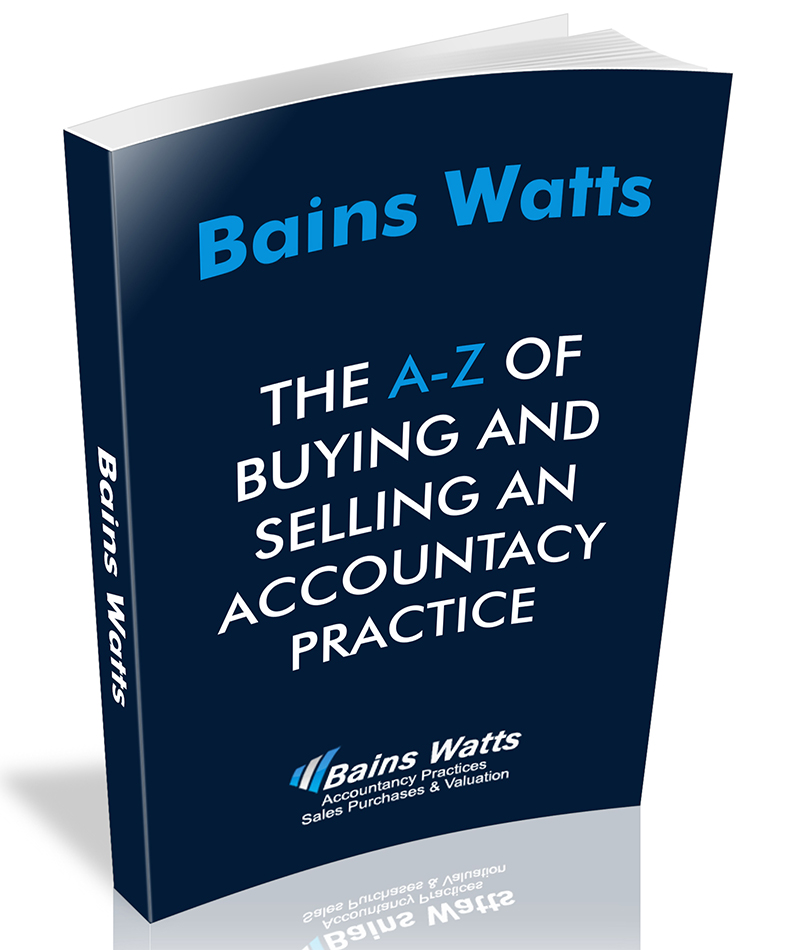From Start to Finish: A Step-by-Step Guide to Selling Your Accountancy Practice
Thinking about selling your accountancy practice but not sure where to start? Look no further! In this comprehensive guide, we’ll take you through the entire process, from start to finish, giving you all the essential steps you need to follow to successfully sell your accountancy practice. Whether you’re a sole practitioner looking to retire or a partner in a larger firm seeking new opportunities, this step-by-step guide will provide you with the insights and strategies to navigate the complex terrain of selling a professional service business. We’ll cover everything from evaluating the value of your practice and finding the right buyer to negotiating the best deal and ensuring a smooth transition for your clients and staff. Selling your accountancy practice doesn’t have to be overwhelming or stressful. With our expert guidance, you’ll be equipped with the knowledge and tools to confidently navigate the process and achieve the best possible outcome. So, let’s dive in and get started on your journey to a successful sale!
Understanding the market for accountancy practices
Selling your accountancy practice begins with understanding the market. Before you can accurately evaluate the value of your practice or find potential buyers, it’s crucial to have a deep understanding of the current market conditions and trends. Research the demand for accountancy practices in your area and identify any niche markets that may be particularly attractive to buyers. Consider factors such as the size of your practice, the number of clients, and the services you offer. Assess the competition and determine what sets your practice apart. This market analysis will help you position your practice effectively and attract the right buyers.
Next, familiarize yourself with the various types of buyers in the market. These can include other accountancy firms, individual practitioners, or even private equity firms. Each type of buyer may have different motivations and requirements, so it’s essential to tailor your approach accordingly. Understand what buyers are looking for in an accountancy practice and highlight those aspects of your business that align with their needs. By understanding the market and the buyers within it, you can strategically position your practice for a successful sale.
Once you have a clear understanding of the market, it’s time to prepare your accountancy practice for sale.
Preparing your accountancy practice for sale
Preparing your accountancy practice for sale involves taking a close look at your business operations, financials, and client relationships. Start by conducting a thorough review of your financial statements, including balance sheets, profit and loss statements, and cash flow statements. Ensure your financial records are accurate, up-to-date, and well-organized. Buyers will want to see a clear picture of your practice’s financial health, so it’s crucial to present this information in a transparent and professional manner.
In addition to financials, evaluate your client base and client relationships. Identify your most valuable clients and consider any client dependencies that may impact the sale. Develop a plan to mitigate these dependencies and ensure a smooth transition for your clients. This may involve introducing clients to key staff members or providing additional support during the transition period. By proactively addressing client concerns, you’ll increase buyer confidence and make your practice more attractive.br/>
Another important aspect of preparing your practice for sale is optimizing your operations. Streamline your processes, eliminate any unnecessary inefficiencies, and ensure your technology systems are up-to-date and secure. Buyers are looking for practices that are well-managed and efficient, so investing time and effort into improving your operations can significantly increase the value of your practice. Consider seeking external advice or engaging a consultant to help identify areas for improvement and implement best practices. By presenting a well-organized and efficient practice, you’ll increase buyer interest and potentially command a higher sale price.
Valuing your accountancy practice
Once you’ve prepared your accountancy practice for sale, the next step is to determine its value. Accurately valuing your practice is crucial to ensure you receive a fair price and attract serious buyers. There are several methods for valuing a professional service business like an accountancy practice, including the market approach, the income approach, and the asset-based approach.
The market approach involves comparing your practice to similar ones that have recently been sold. By analyzing the sale prices of comparable practices, you can estimate the value of your own. Factors such as revenue, profitability, client base, and location are considered in this approach. The income approach, on the other hand, focuses on the future earning potential of your practice. It takes into account factors such as revenue growth, client retention rates, and the quality of your staff. Finally, the asset-based approach looks at the value of the tangible and intangible assets of your practice, such as equipment, technology, client lists, and intellectual property.
To accurately value your practice, it’s often beneficial to engage the services of a professional business appraiser with experience in the accountancy industry. They will have the expertise to analyze your practice and provide an objective valuation based on industry standards and best practices. By obtaining a professional valuation, you’ll have a solid foundation for negotiating the sale price and ensuring a fair deal for both parties involved.
Finding potential buyers for your accountancy practice
With your practice prepared and its value determined, it’s time to find potential buyers. Start by leveraging your professional network and reaching out to colleagues, industry associations, and contacts in the accountancy community. Confidentiality is crucial during this process, so be sure to use discretion when discussing the potential sale of your practice. You can also consider engaging a business broker or intermediary who specializes in selling professional service businesses. These professionals have access to a network of potential buyers and can guide you through the entire sales process.
When approaching potential buyers, it’s important to present your practice in the best possible light. Develop a compelling sales package that highlights the unique aspects and strengths of your practice. Include information about your client base, financial performance, staff expertise, and any competitive advantages. Emphasize the potential for growth and future opportunities. By presenting a compelling case, you’ll attract serious buyers and increase your chances of securing a successful sale.
Negotiating the sale of your accountancy practice
Negotiating the sale of your accountancy practice is a critical step in the process. It’s important to approach negotiations with a clear understanding of your goals and priorities. Determine your minimum acceptable price and be prepared to negotiate on other terms such as payment structure, transition period, and non-compete agreements. Consider seeking legal and financial advice to ensure you’re making informed decisions and protecting your interests throughout the negotiation process.
During negotiations, be open to compromise and flexible in finding solutions that meet the needs of both parties involved. Keep in mind that the sale of your practice is not just a financial transaction but also a transition for your clients and staff. Strive for a win-win outcome that ensures a smooth transition and maintains the goodwill and trust you’ve built with your clients over the years. By approaching negotiations with professionalism and a focus on the long-term success of your practice, you’ll increase the likelihood of a successful sale.
Legal and financial considerations when selling your accountancy practice
Selling your accountancy practice involves a variety of legal and financial considerations. It’s important to consult with legal and financial professionals who specialize in business sales to ensure compliance with relevant laws and regulations. Consider engaging an attorney to review and draft the necessary legal documents, such as the purchase agreement and any non-disclosure agreements.
Financial considerations include tax planning, structuring the sale, and managing the proceeds. Work with a qualified accountant or tax advisor to understand the tax implications of the sale and develop a strategy to minimize your tax liability. Consider the most advantageous way to structure the sale, whether it’s an asset sale or a stock sale, and consult with your financial advisor to manage and invest the proceeds effectively.
Transitioning ownership and client relationships
As the sale of your accountancy practice approaches, it’s crucial to plan for a smooth transition of ownership and client relationships. Communicate the upcoming sale to your staff and involve them in the transition process as much as possible. Introduce them to the buyer and provide any necessary training or support to ensure a seamless handover. Consider developing a transition plan that outlines key milestones and responsibilities to ensure a successful transfer of client relationships.
For your clients, transparency and open communication are essential. Notify them of the upcoming sale well in advance and assure them that their needs will continue to be met. Introduce them to the buyer and facilitate meetings or events to help build rapport. Ensure that all client information and data are transferred securely and in compliance with privacy laws. By prioritizing the needs of your clients and providing a smooth transition, you’ll maintain their trust and loyalty even after the sale.br/>
Post-sale considerations and planning for the future
After the sale of your accountancy practice, it’s important to consider the post-sale implications and plan for the future. Evaluate your financial position and reassess your long-term goals. Determine how you’ll manage your newfound wealth and consider investment opportunities that align with your financial objectives. If you’re retiring, develop a comprehensive retirement plan that ensures a comfortable and fulfilling future.
If you’re transitioning to a new role or pursuing new opportunities, take the time to reflect on your skills and interests. Consider how you can leverage your experience and expertise to make a positive impact in your new endeavors. Explore options such as consulting, teaching, or mentoring to share your knowledge and contribute to the accountancy profession.
Lastly, don’t forget to celebrate your achievements and acknowledge the hard work and dedication it took to build and sell your accountancy practice. Take time to appreciate the journey and the valuable relationships you’ve formed along the way. Selling your practice is a significant milestone, and by planning for the future, you’ll ensure a rewarding and fulfilling next chapter.
Conclusion
Selling your accountancy practice is a complex process, but with the right guidance and preparation, it can be a rewarding experience. By understanding the market, preparing your practice, valuing it accurately, finding potential buyers, and negotiating effectively, you’ll be well-equipped to achieve a successful sale. Remember to consider the legal and financial implications, plan for a smooth transition, and think ahead to your post-sale future. With careful planning and strategic execution, you can confidently navigate the process and achieve the best possible outcome. So, take the first step and embark on your journey to selling your accountancy practice – a new and exciting chapter awaits!


